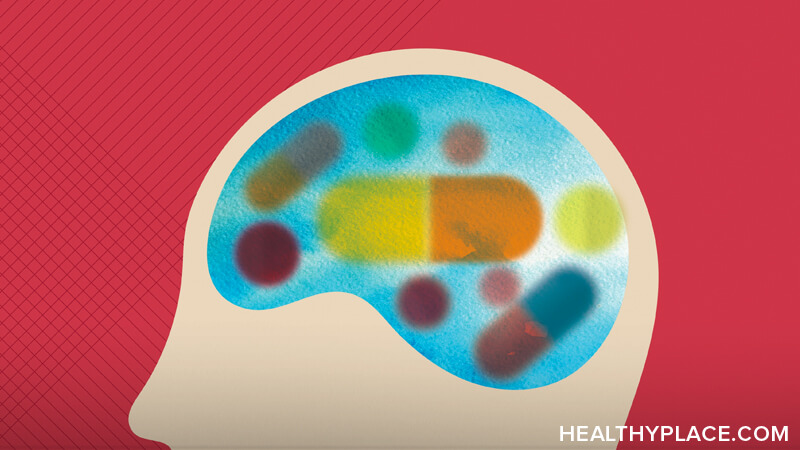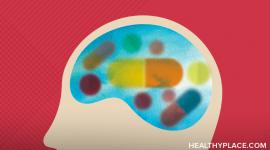Drug-Induced Schizophrenia? Is it Possible?
 Statistics can make it appear that drug-induced schizophrenia is a real condition. Almost half of people who have schizophrenia struggle with substance use and abuse, and they are four times more likely to use and abuse substances than are people who don’t have schizophrenia (Veague, 2007).
Statistics can make it appear that drug-induced schizophrenia is a real condition. Almost half of people who have schizophrenia struggle with substance use and abuse, and they are four times more likely to use and abuse substances than are people who don’t have schizophrenia (Veague, 2007).
The numbers are staggering. According to Miller and Mason (2011), schizophrenia increases the chance of using and abusing drugs by 7.6 percent; further, for someone with schizophrenia, the lifetime risk for substance abuse (drug, alcohol, and nicotine) is about 50 percent.
What is the connection between schizophrenia and substance use? Researchers have been seeking answers to that very question for many decades. Experts are confident about a few of the answers that have been uncovered.
- There is some type of relationship between drug use and schizophrenia.
- Often, people with schizophrenia are looking for symptom-relief, and they find it (at least temporarily) in street drugs and/or alcohol. In many cases, by the time someone realizes that drugs don’t permanently relieve symptoms, he or she is addicted.
- The connection between drugs and schizophrenia is related to action and imbalances in the brain.
There is more to the issue of the relationship between this serious mental illness and substance use. Schizophrenia and many different street drugs share symptoms. Does one cause the other? Can drugs induce schizophrenia? The question and the answers are complicated.
Drugs that Have a Connection to Schizophrenia.
Hallucinations, delusions, paranoia, disordered thinking, confusion, panic, anxiety, mood swings, and catatonia are effects of certain drugs. They’re also symptoms of schizophrenia. This can make it appear that using one or more of these drugs causes schizophrenia:
- Alcohol (binge drinking)
- Caffeine (excessive amounts)
- Club drugs (like MDMA/ecstacy/XTC, roofies, ketamine, and more)
- Cocaine and crack cocaine
- Marijuana/cannabis
- Steroids
- Hallucinogens/psychedelic drugs
- Amphetamines
- Sedatives/hypnotics
- Opioids
These drugs can induce the above symptoms, and when they do that, it looks like schizophrenia. Despite this, the current belief among researchers and other professionals, is that schizophrenia can’t be drug-induced (with the possible exception of cannabis).
What is the Relationship between Schizophrenia and Drugs? Triggers and Risk
Years ago, drugs were believed to cause schizophrenia. With continued research has come new understanding.
It’s now understood that street drugs and alcohol can and do cause symptoms of schizophrenia. They do not, however, cause the long-term serious mental illness itself.
No causal relationship (again, with the likely exception of cannabis) has been determined. The relationship instead involves:
- Triggers—substances can trigger the onset of schizophrenia in someone who had the potential to develop it anyway.
- Early onset—a type of trigger, drug use can cause schizophrenia to emerge much earlier than is typical for a younger teen (especially one who is male) who is at-risk
- Risk—in someone who is vulnerable to schizophrenia, using drugs or excessive alcohol can increase the risk that schizophrenia will develop
- Downward spiral—substance use worsens the symptoms of schizophrenia and makes its prognosis worse, and schizophrenia’s worsening symptoms can contribute to heightened substance use.
Looking to the Brain for Answers
Schizophrenia and substance abuse can share symptoms. They also share the center of those symptoms: the brain. Whether someone has schizophrenia, a substance use disorder, or both, psychotic symptoms are caused by the effect within the brain.
Drugs act on neurotransmitters and receptors in the brain to produce hallucinations, delusions, and other symptoms. Schizophrenia is an illness of the brain, and the illness involves, in part, the same neurotransmitters.
Interestingly, both schizophrenia and drugs are implicated in chemical imbalances in the brain. Further, the brain’s reward mechanisms are activated and respond the same to drug use and certain aspects of schizophrenia. Many researchers believe that these connections cause the psychotic symptoms of both substances and schizophrenia as well as reinforce substance use in people with schizophrenia (Miller & Mason, 2011).
How Long Do Psychotic Symptoms Last?
Whether they come from drug use, schizophrenia, or both, psychotic symptoms can be frightening. People who experience a psychotic break during drug use often ask legitimate questions:
- Does drug-induced schizophrenia go away?
- Can drug-induced schizophrenia be reversed?
Because schizophrenia isn’t drug-induced (other than possibly cannabis), the psychotic symptoms that result from drug use will go away. Sometimes they disappear within hours of the drug leaving the system, while other times it can take longer. The length of time depends on the drug.
There isn’t drug-induced schizophrenia to be reversed, but for the psychotic symptoms to fully stop, it’s important to stop using drugs and alcohol. Addiction is tough to overcome, so there are treatment centers in place to help.
Schizophrenia’s psychotic symptoms won’t go away, but they can be reduced with prescription medication. They can also go into remission. Whether from drug use or schizophrenia, you can get help and drastically reduce or eliminate symptoms of psychosis.
APA Reference
Peterson, T.
(2018, March 28). Drug-Induced Schizophrenia? Is it Possible? , HealthyPlace. Retrieved
on 2026, March 3 from https://www.healthyplace.com/thought-disorders/schizophrenia-and-drug-abuse/drug-induced-schizophrenia-is-it-possible-2


